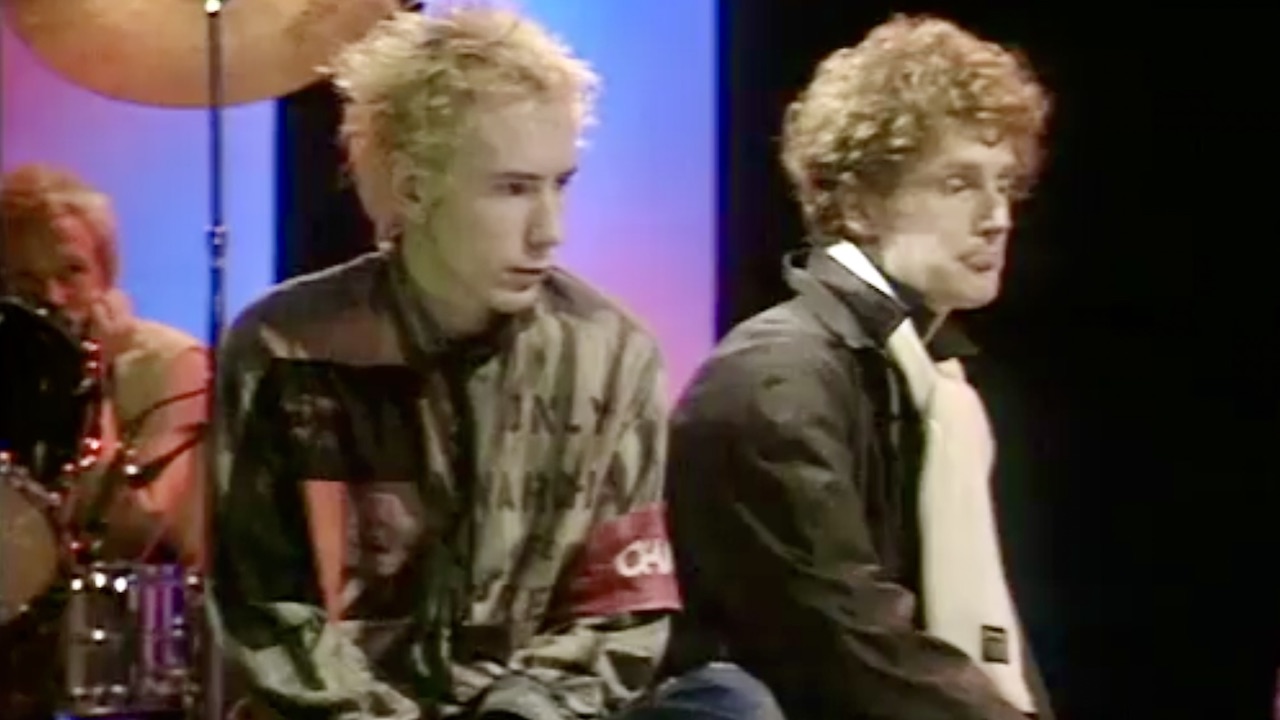On November 12, 1976, two weeks ahead of the release of their debut single Anarchy In The UK, the Sex Pistols, along with their manager Malcolm McLaren, were invited to appear on primetime BBC1 TV current affairs show Nationwide.
Less than a year on from their debut gig at Saint Martins College in central London, the quartet had signed a major label deal with EMI, and the Beeb was keen to investigate a group who, as a voiceover informed viewers of Nationwide, one London newspaper had called "the most aggressive, nasty band ever."
"They've already been barred from most of the leading London clubs, both because of their music, and because of the violence they bring with them. And yet this group are leaders of a whole new teenage cult that seems to be on the way to being as big as mods and rockers were in the '60s."
"The cult is called punk," says presenter Maggie Norden, with the sort of solemnity one might adopt when announcing the death of a monarch, or the outbreak of a world war. "The music punk rock... basic rock music, raw, outrageous and crude."
"Punks have multi-coloured hair," the Nationwide audience is told, "vampire make-up, ripped T-shirts held together by safety pins, Swastika armbands, pink plastic trousers and tight leather jeans... you can't buy this sort of gear in Marks & Sparks..."
Norden also informs those watching that punks are acquiring a reputation as "trouble makers", and viewers at home are shown a photo of a youthful Shane MacGowan, later famous as the frontman of The Pogues, sporting a bloody ear following an incident at the ICA where he had his earlobe bitten off by his girlfriend, apparently "driven to frenzy by a punk group, appropriately called Clash."
Grilled by Norden, Malcolm McLaren says that punk exists "because kids want excitement, they want things that are going to transform what is basically a very boring life for them right now."
"Which bands do you think are really old hat now?" Norden then asks John Lydon/Johnny Rotten. "Are you against the Stones and The Who?"
"Yes, of course," says a deadpan Rotten, "because they're established. They just do not mean anything to anyone."
McClaren then suggests that the music industry hates the Pistols, but that all that matters is that the band connect with "the kid in the street" who buys records.
"Does it matter if the record doesn't sell?" Norden asks with a disdainful look.
"There's no question it'll sell," McLaren says in response.
Watch the six minute segment below:

